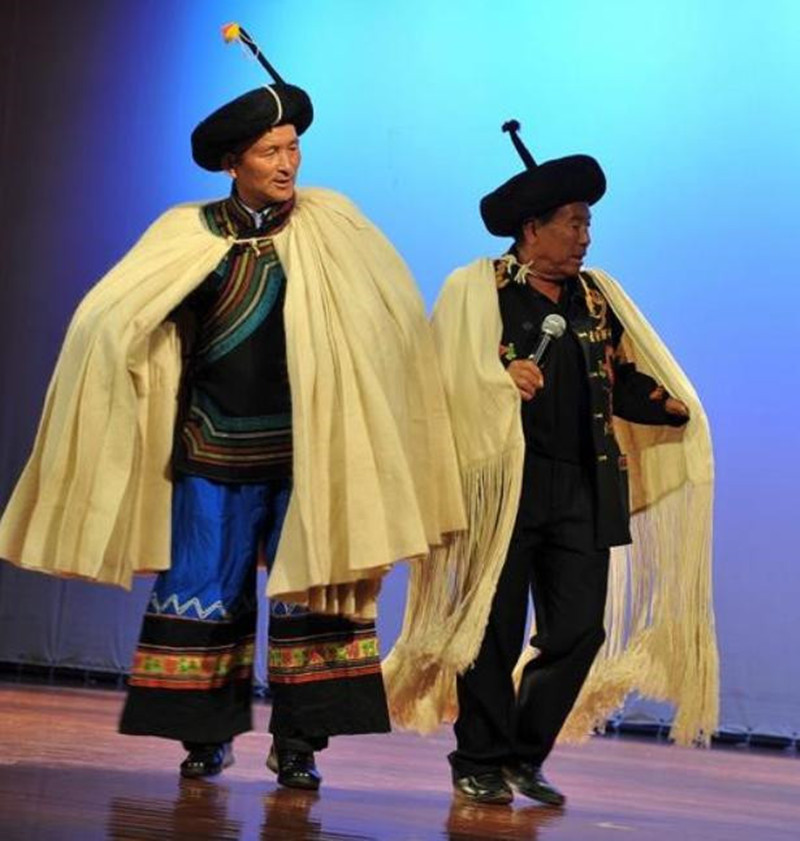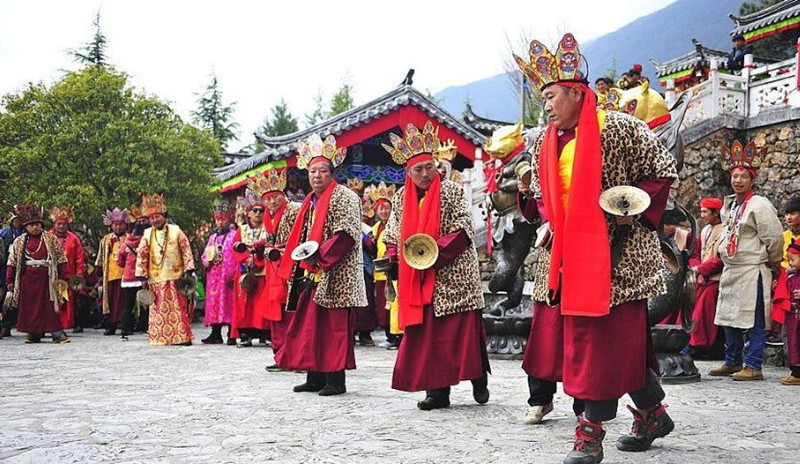 alt="Market Days in Menglian and Townships, Puer"
/>
alt="Market Days in Menglian and Townships, Puer"
/>
Yunnan Religions
China has been a multi-religious country since the ancient times. Yunnan is a religious resort well known in China as well as an important place where many world religions gather. Many religions are widely distributed among the multi-nationalities in Yunnan, including Buddhism, Catholicism, Christianity, Islamism as well as the Dongba Religion, Benzhu Religion and other minority primitive religions. According to a demographic analysis of religions in Yunnan, as of 2005 the province has around 4 million believers of the five government-sanctioned organised religious doctrines of China, almost 90% of them belonging to the ethnic minorities. Of these, 2.6 million or about 6% of the total population are Buddhists; 620,000 or 1.4% are Muslims; 530,000 or 1.2% are Protestants; 240,000 or 0.5% are Taoists (note that “Taoist” traditionally only defines priests); 66,000 or 0.1% are Catholics, etc.
Confucianism in Yunnan
Confucianism had been regarded as an ethic-political system in ancient China. For more than thousand years it has moulded and shaped the civilization of China and exerted a profound influenced upon almost one fourth of the human race. Even in the frontier ethnic areas, the role of Confucian culture is no less important than that of the mainland. Yunnan is located in the southwestern border of China, which has been a multi-ethnic area since ancient times. It has been an important part of China for more than two thousand years. Confucian culture plays an important role in the continuous inheritance of Yunnan.
Buddhism in Yunnan
The widely spreading Buddhism in Yunnan includes three divisions, namely Hynayana (Small Wheel or Southern Buddhism), Mahayana (Big Wheel or Chinese Buddhism) and Tibetan Buddhism (Lamaism) among which, in China, Hynayana can only be found in Yunnan Province. They are broadly spread in the middle, south and northwest of Yunnan, forming a special phenomenon that many religions gather in one place compatibly, which is rare in the world. They have made Yunnan an ideal kingdom with special attraction for pilgrimage of religious followers from China and abroad.
Muslims in Yunnan Now, Islam has spread all over Yunnan Province, mainly in Kunming, Yuxi, Honghe, Wenshan, Dali, Baoshan, Zhaotong, Chuxiong, Simao, and Qujing prefectures and municipalities. It is believed by the Hui, some Dais, Bais, Tibetans and Zhuangs. Muslim population in Yunnan are about 698265 by 2010, there were 717 mosques in service, 11 qubbahs (domed buildings) and Yunnan Branch of the Islam Association of China was founded in 1984 and its office is set in the Shunchen Mosque in Kunming.
Christianity in Yunnan
Christianity is a minority in Yunnan province of China. There are two divisions of Christianity in Yunnan Province: Protestantism and Catholism. There are more than a million Protestants in the province. Yunnan has persecution of Christians. Fugong has a Christian majority. Nujiang has a notable Christian minority. Yunnan has Hmong Churches and many Lisu Churches. Han Chinese are a minority among the Christians in the province. The Roman Catholic Church, affiliated directly with the Vatican, has approximately 60,000 members in Yunnan. Membership is composed primarily of Yunnan’s ethnic minority communities.
Benzhuism of Bai Ethnic Minority
Benzhuism is the indigenous religion of the Bai people, which consists in the worship of the ngel zex, the Bai word for “patrons” or “lords”, rendered as benzhu (本主) in Chinese, that are local gods and deified ancestors of the Bai people. It is very similar to common Chinese religion. While many of the Bai are Buddhists, the local government of China has recently helped the revival of the Benzhu ethnic religion, for example through the promotion of the Gwer Sa La festival.
Bimoism of Yi Ethnic Minority
Bimoism (Chinese: 毕摩教) is the indigenous religion of the Yi people, the largest ethnic group in Yunnan after the Han Chinese. It takes its name from the bimo, shaman-priests who are also masters of Yi language and scriptures, wearing distinctive black robes and large hats. In 1996, the Bimo Culture Research Center was founded. In the early 2010s, the government of China has helped the revival of the Bimoist faith through the construction of large temples and ceremonial complexes.
Dongbaism of Naxi Ethnic Minority
Lijiang is the main settlement where Naxi ethnic minority is inhabited, which is the only Naxi autonomous county in China. The term dongba refers to priests of the Nakhi people of Southwest China, who are masters of traditional culture, literature and Dongba symbols. The dongba are Bon priests. They play a major role in Nakhi culture and preach harmony between man and nature. Their costumes show strong Tibetan influence, and pictures of Bön gods can be seen on their headgear. Tibetan prayer flags and Taoist offerings can be seen in their rituals.

 7 Days GolfingTour
7 Days GolfingTour
 8 Days Group Tour
8 Days Group Tour
 8 Days Yunnan Tour
8 Days Yunnan Tour
 7 Days Shangri La Hiking
7 Days Shangri La Hiking
 11 Days Yunnan Tour
11 Days Yunnan Tour
 6 Days Yuanyang Terraces
6 Days Yuanyang Terraces
 11 Days Yunnan Tour
11 Days Yunnan Tour
 8 Days South Yunnan
8 Days South Yunnan
 7 Days Tea Tour
7 Days Tea Tour
 8 Days Muslim Tour
8 Days Muslim Tour
 12 Days Self-Driving
12 Days Self-Driving
 4 Days Haba Climbing
4 Days Haba Climbing
 Tiger Leaping Gorge
Tiger Leaping Gorge
 Stone Forest
Stone Forest
 Yunnan-Tibet
Yunnan-Tibet
 Hani Rice Terraces
Hani Rice Terraces
 Kunming
Kunming
 Lijiang
Lijiang
 Shangri-la
Shangri-la
 Dali
Dali
 XishuangBanna
XishuangBanna
 Honghe
Honghe
 Kunming
Kunming
 Lijiang
Lijiang
 Shangri-la
Shangri-la
 Yuanyang Rice Terraces
Yuanyang Rice Terraces
 Nujiang
Nujiang
 XishuangBanna
XishuangBanna
 Spring City Golf
Spring City Golf
 Snow Mountain Golf
Snow Mountain Golf
 Stone Mountain Golf
Stone Mountain Golf










 What Our Customers Say?
What Our Customers Say?
